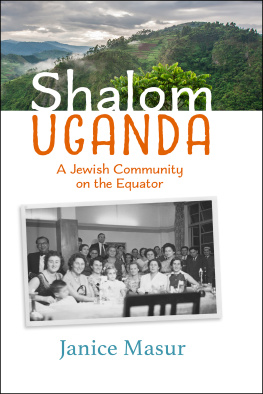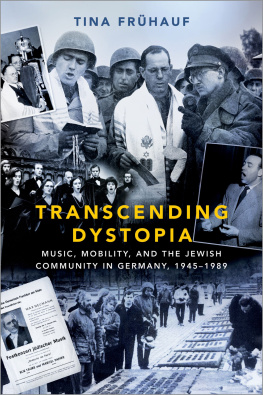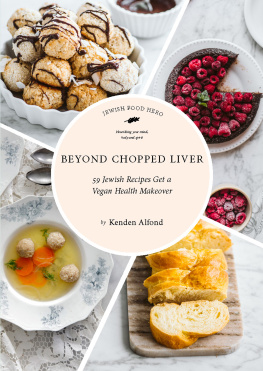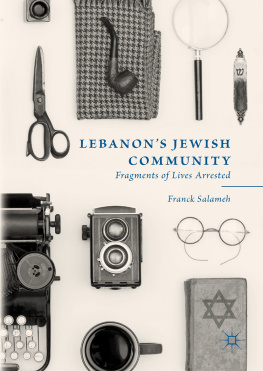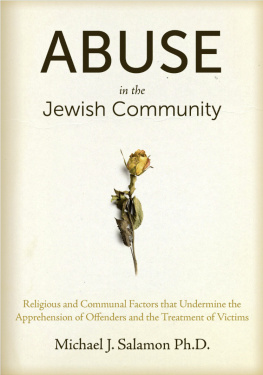In accordance with the U.S. Copyright Act of 1976, the scanning, uploading, and electronic sharing of any part of this book without the permission of the publisher constitute unlawful piracy and theft of the authors intellectual property. If you would like to use material from the book (other than for review purposes), prior written permission must be obtained by contacting the publisher at permissions@hbgusa.com. Thank you for your support of the authors rights.
This book is dedicated to our families, Nick, Alexandra, and Natasha; Michael, Joya, Forest, Isaac, and Sophia; Shai, Lydia, and Julia. They enthusiastically encouraged us, supported us, and showed endless patience and adventurous appetites. They were well fed during this project.


WHY DO WE COOK? How many of us have asked this question as we rush home on Friday afternoon, or for that matter any afternoon, having ambitiously planned a feast and not left enough time to cook it? Despite the fact that there are take-out options in abundance and a restaurant on every corner where I live, I spend the week poring over recipes, planning menus, and shopping for food. And all in all, its a pretty joyous experience.
The desire to nurture our family and friends is at the heart of why we cook. A special dinner at a restaurant or lunch out with friends can be lovely (I personally have a secret love for department store cafs), but when we sit down at the table at home, time slows down. Gratitude bubbles up around mefor the people I love, for the food we too often take for granted, for the conversation (however mundane), and especially for the time to appreciate it all.
In Jewish tradition, we say a blessing before we eat, giving thanks for the bread that comes from the earth. But bread doesnt actually come from the earth. There are a multitude of steps that take place before bread appears on our table. The soil has to be prepared, the wheat planted, and then watered by the rain, warmed by the sun, harvested, and brought to the mill to make flour. When we combine the ingredients, knead the dough, let it rise, and shape it into bread, we become a part of the blessing.
We begin with a single ingredient when we cook, but that ingredient quickly becomes transformed. Is there anything as wonderful as a crisp Macoun apple on a chilly autumn day? Try combining that apple with other apples of different varieties and add some sugar, oatmeal, flour, and butter and bake it for an hour or so. The sum really can be greater than its parts. Cooking is an opportunity to create, to take raw material and shape it into something more, something wonderful and even magical.
This idea, this power to transform, is what animates JCC Manhattan and indeed JCCs throughout North America and beyond. Every day, we remember the central Jewish teaching that every person is unique, bringing something important to the world. Every day, we are witness to what happens when one person is joined with others in community. We become different; we often become better. There is strength when we build good communities and we are reminded that, as special as we are as individuals, when we come together we can be more, do more, and expect more.
The Community Table is the result of these two big ideasthe values inherent in cooking and the value of communitycoming together. Like most projects, it started with a few people who later became the architects, chefs, and authors of this cookbook. Our three authors have each been intrinsically connected to JCC Manhattan over many years.
It was Judy Bernstein Bunzls idea to do a JCC cookbook, celebrating the ten years JCC Manhattan has been a catalyst for community building on 76th Street and Amsterdam Avenue. A major foodie and terrific cook, Judy has spent the last several years tending her magnificent organic garden in the backyard of her Riverdale home. Judys garden not only feeds her friends and family with beautiful produce, but also feeds her soul.
Katja Goldman is the professional and published chef of the group. An invitation to Katjas Shabbat table is prized for its culinary treats and for the stimulating conversation that occurs there every week. She is one of the leaders and primary teachers of the New York home challah baking trend: For Katja, challah making is an act of meditation and giving challah is a gift of compassion.
Lisa Rotmil is also a foodie who has previously edited a community cookbook and cooks every night for her family. For Lisa, cooking is a way of slowing down the hectic pace of a busy Manhattan family and provides her with a strong bond to her grandfather, who as a master craftsman taught her the importance of paying attention to detail and artistic expression.
Each of these women is a force of nature in her own right and together they have collaborated to create a work of art for all of us to savor. They share a love of food and a love of JCC Manhattan and the many ways we create powerful community every day. They have brought the best of themselves to the project, sharing recipes and memories as they diced, braised, and roasted. When they disagreed about a recipe, they simply made the dish each way and sampled them. Would that all our conflicts could be settled by tasting chocolate cookies three ways!
For Judy, Katja, and Lisaand for us at the JCCsharing food is an important way we nurture one another, whether we are on the Upper West Side of Manhattan or in places like San Francisco, Detroit, Atlanta, Pittsburgh, Washington, or Houston. We are grateful to our fellow JCCs in those cities for sharing their stories with us, which you will find throughout the book. When you walk into a JCC, you may see a gym and a pool, a nursery school or day campbut there is so much more at play. We hope through these stories you will come to know the JCCs as they really areplaces that bring people together, that support, nourish, and value the mind, body, and spirit of everyone who walks through our doors.
We invite you to make these recipes your own and to build your own community table. The food you make will delight; the community you create will inspire.
From our community table to yours,
Joy
RABBI JOY LEVITT,
EXECUTIVE DIRECTOR,
JCC MANHATTAN







